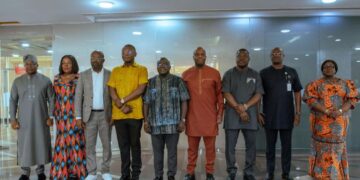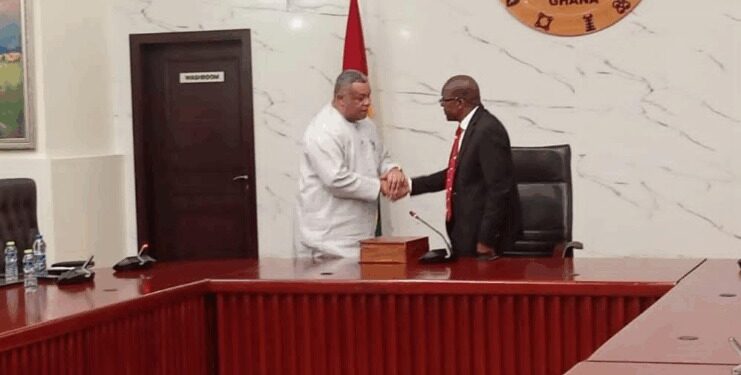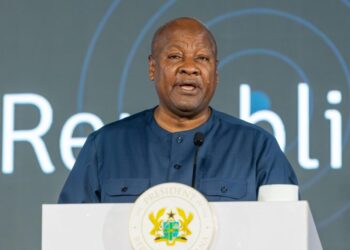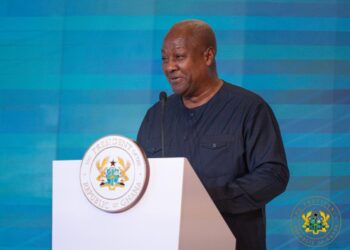Ghana’s much-anticipated 24-hour economy policy is set to officially take off on Wednesday, July 2, 2025, as part of government efforts to boost job creation and drive economic growth.
This was confirmed by the Presidential Advisor on the 24-hour economy, Goosie Tanoh while formally presenting the final policy document to the Speaker of Parliament, Alban Bagbin, on Thursday, June 26.
The policy, a flagship campaign promise of the National Democratic Congress (NDC) during the 2024 elections, seeks to promote round-the-clock business operations, enhance productivity, and reduce unemployment across the country.
Presenting the document, Mr. Tanoh explained that the policy is anchored on three key pillars — modernising production, improving supply chain and market systems, and building a skilled workforce capable of supporting a 24-hour economy.
He noted that these pillars are backed by eight strategic sub-programmes aimed at ensuring that all sectors of the economy play a meaningful role in making the initiative a success.
The 24-hour economy focuses on transforming agriculture through technology and innovation, boosting manufacturing and industrial output, and strengthening supply chains.
It also seeks to reshape national work culture and attitudes towards productivity, while promoting Ghana’s rich cultural heritage to attract tourists and generate revenue.
Mr. Tanoh further revealed that government will integrate digital skills training into Technical and Vocational Education and Training (TVET) programmes to equip young people with the relevant skills needed to take advantage of new job opportunities under the 24-hour economy.
Speaker Alban Bagbin, who received the policy document, welcomed the initiative but stressed the need for strong legal backing to ensure its sustainability beyond political transitions.
He urged the government to work with Parliament to pass legislation that would enshrine the 24-hour economy as a lasting national programme, regardless of which political party is in power.





































